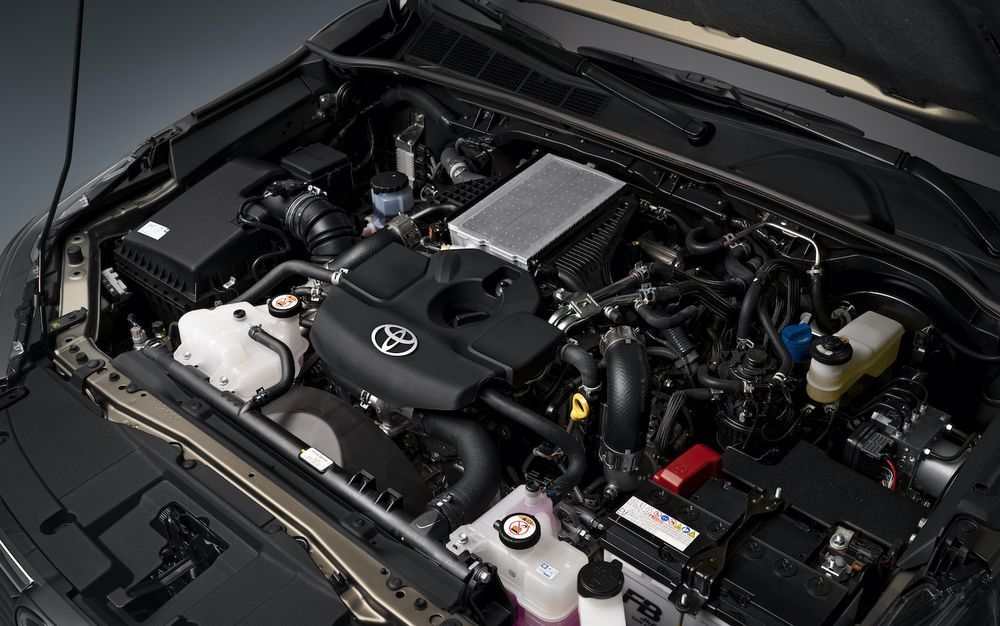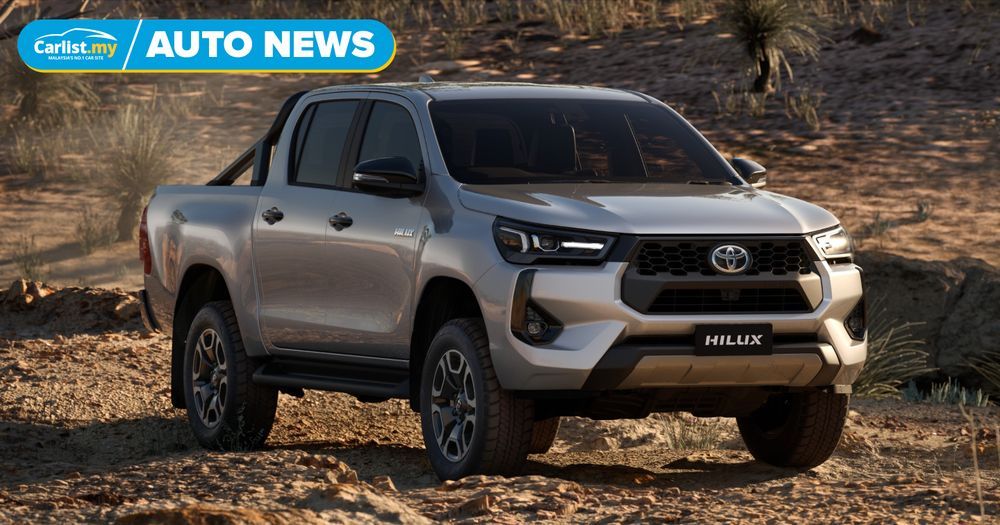Toyota has unveiled a revamped HiLux for 2024, injecting a dash of electrification with a mild-hybrid powertrain offered to selected 4X4 double-cab variants in the Australian market.
Down under, Toyota Australia boasts that the 48-volt system champions engine finesse and efficiency, elevating fuel economy by a commendable 6% to 10% compared to its predecessor, contingent upon the variant.
Under the hood of the 2024 HiLux lies a 48-volt MHEV system comprising a motor generator, 48-volt lithium-ion battery, and a DC/DC converter, enabling the integration of a stop-start system while refining performance and fuel efficiency.
Toyota affirms that this enhancement mitigates noise, vibration, and harshness, offering a smoother ride. Models equipped with the 48-volt mild-hybrid system also receive Multi-Terrain Select as a standard feature.
Disclosed specifications from Toyota divulge that the 48-volt mild-hybrid system bolsters the HiLux with an additional 16 PS and 65 Nm, synergising with the diesel engine’s output of 204PS at 3,400 rpm and 500Nm.

The exterior receives a makeover, boasting a revamped grille and front bumper, culminating in an octagonal grille and a trapezoidal lower section, exuding a refreshed aura.
Scheduled for a March debut in Australian showrooms, the mild-hybrid HiLux marks a stride towards eco-conscious motoring.
Meanwhile, in Malaysia, the HiLux underwent its latest transformation in 2023 with the introduction of the GR Sport variant, featuring a souped-up 2.8-liter turbodiesel engine that sees an increase in power to 224PS and torque to 550Nm.

Although the Malaysian iteration lacks the aggressive exterior cues of its Australian counterpart, retaining essential features such as the six-speed automatic transmission, part-time four-wheel drive system, automatic limited-slip differential, rear differential lock, and Active Traction Control (A-TRC).
Given its end-Q1 debut for the notoriously truck-hungry Aussie market, we might not have too long a wait ahead of us given the Southeast Asian market’s appetite isn’t far off behind, especially in Thailand, making a latter 2024 entry quite plausible.
